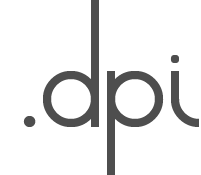It seems so easy to romanticize the past, to invent a false nostalgia of a period one has actually never experienced. Just like some teenagers today wish they had lived in the 1990s (because of its current trendiness), I sometimes regret not having lived in the revolutionary eras of the 1960s and 1970s. This is probably based on the constructed perception that “back then” being a woman seemed to almost always equal being a feminist and where women seemed to kick ass in general by coming together, resisting and being mutually supportive of each other in all areas of life.
Dreams of the past are perhaps intertwined with fears in the present, the idea that today some things have become “less possible” due to the social, political and economic context, under globalized austerity, precarity and surveillance. Today, or so it seems, being a woman doesn’t necessarily lead to being a feminist, and being a feminist doesn’t necessarily lead to being against all forms of oppression (racism, ableism, classism, etc.). However, while feminism seems to have become less normalized in our present time (e.g. the discourse of the superfluousness of feminism being rampant across younger generations, or the association between feminism and hatred of men), feminist initiatives seem to be multiplying and gaining visibility. Is atomization currently reversing?
The dynamics and politics of visibility are critical to struggle, and hence, to feminism. As part of a patriarchal system, the actions of women tend towards invisibility. This is true in terms of labour in general, and hence, also of the arts. Remembering what previous and current generations of women have done is not only important for countering the process of becoming invisible but also for honoring and mutually inspiring each other - a part of a feminist ethic. Because perception is at the basis of our actions, documenting, revisiting and analysing contribute to transformation. While this belief underlies the raison-d’être of .dpi in general, our new annual edition focused on Montreal aims to play a more direct role in community building at a local level. Unlike the other annual issues, this one does not involve a guest editor.
For the first iteration of “The Montreal Issue”, we started close to home in many ways. Firstly, all contributions in this current issue are volunteer and authored by close .dpi collaborators, including members of the Editorial Committee or bloggers. Given the lack of funding, doing-it-ourselves was a solution. While it would have been nice to be able to pay fees to authors and artists regardless of their affiliation to the publication, it also says something about a certain attachment to projects that lie outside of a monetary relationship which, while complex and full of contradictions, is also a source of hope. The specific context/set of relations of this issue also allowed for voluntary contributions in the sense that .dpi editors individually chose and proposed topics based on their own practices and interests, and not necessarily “to get published” per se. Therefore, this issue also reveals what the .dpi collective particularly “cares about ”, which would include: creating safe spaces, celebrating feminist endeavours, creating bridges between disciplines, generations and media, building solidarity, producing and sharing histories and knowledges.
Secondly, the issue looks at our own cultural milieu, which is composed of artist-run centres, collectives as well as community and research groups. Alongside contributions connected to Eastern Bloc, Vidéographe and Studio XX, the issue features a special collaboration with ally centre La Centrale Galerie Powerhouse, which is celebrating its 40th anniversary this year. More modestly, .dpi is marking its 10th anniversary in 2014 (and will keep you posted on future related events). The issue also makes visible an informal network of centres that share common feminist values through their resistance to Quebec’s current Bill 60 that objectifies and discriminates specific racialized women and communities, and de facto encourages violence against them.
In summary, this issue presents (and connects) sites for coming together as well as communities formed by women and feminists in Montreal. We hope “The Montreal Issue” to be one that people look forward to on an annual basis.
Sophie Le-Phat Ho
In collaboration with the .dpi Editorial Committee
Sophie Le-Phat Ho is a researcher and cultural organizer from Montreal. Trained as an archivist, she has also completed an MA in Anthropology of Health and the Body in the 21st Century at Goldsmiths College (University of London) in the UK, following her studies at McGill University in Environment and in the Social Studies of Medicine. On top of having served as the Artistic Director of The HTMlles 10 | RISKY BUSINESS, the international feminist festival of media arts + digital culture, she has worked at the Daniel Langlois Foundation for Art, Science, and Technology, the Canada Council for the Arts, as well as Studio XX as Programming Coordinator and Editor-in-Chief of .dpi in its early stages. She was one of the curators of UpgradeMTL (Montréal), as part of the Upgrade! International network on technology, culture and politics, and has been invited to co-curate events by artist-run-centres such as Skol, DARE-DARE and Eastern Bloc. Her individual and collaborative writings have been published in Vague Terrain, esse arts + opinions, Inter art actuel, ETC, livedspace, Le Merle, among others. She has also served as Guest Editor for FUSE and No More Potlucks. As a co-founding member of the Artivistic collective (artivistic.org), she works at the intersection of art, science and activism.
